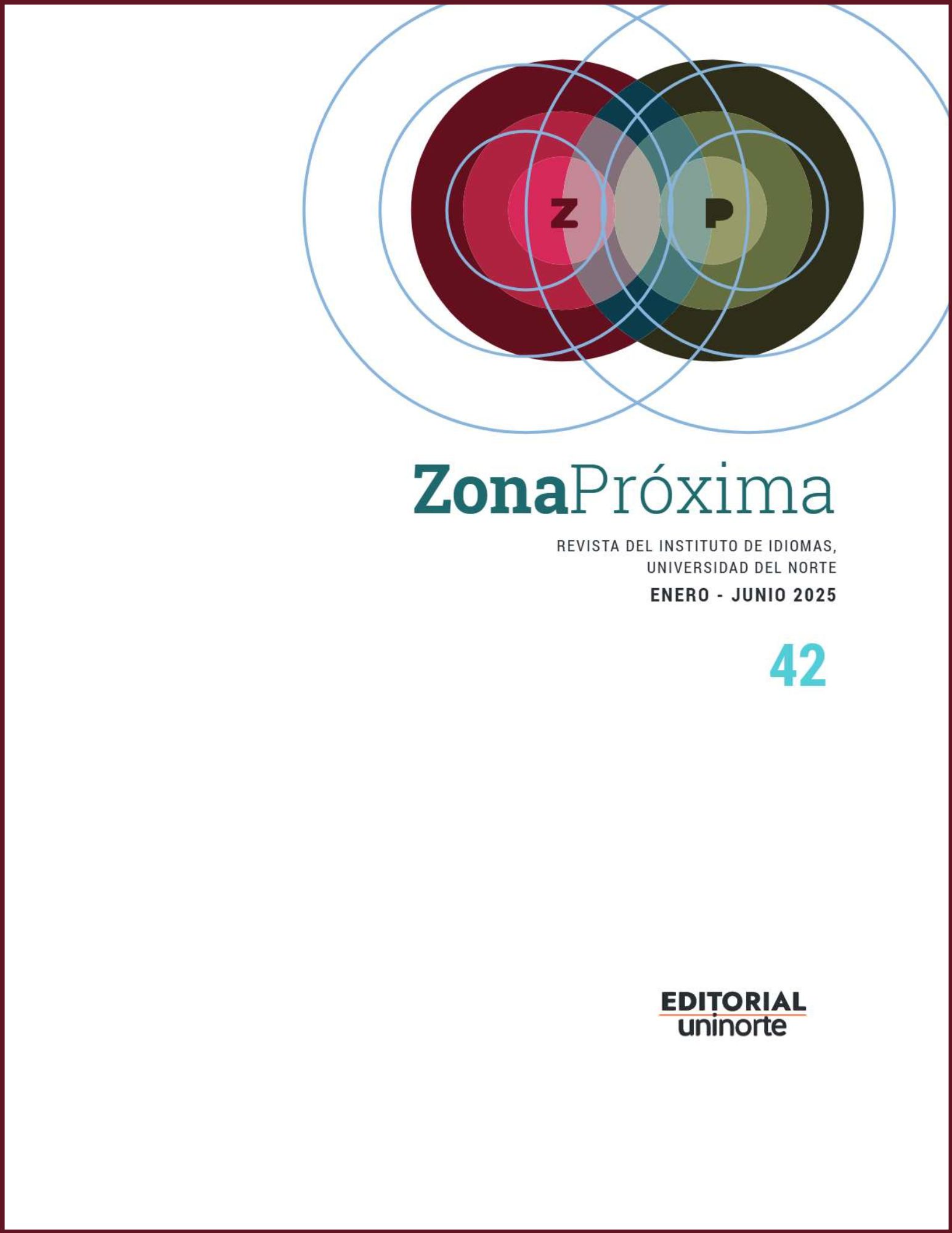Resumen
Las innovaciones curriculares, en la mayoría de las ocasiones, han sido concebidas desde una política pública obedeciendo a enfoques epistemológicos y conceptuales desarrollados por expertos teóricos de la educación, quienes han propuesto orientaciones pedagógicas y didácticas, sin contar con el saber del maestro, sus reflexiones y sus prácticas en el aula. En ese sentido, es importante generar un puente entre la teoría pedagógica, didáctica y curricular que permita recontextualizar el lugar del maestro y su injerencia en la construcción de conocimiento situado. Por esta razón, este estudio centró su interés en reconocer el papel de la escritura académica en los procesos de rediseño curricular de una institución escolar. Se orientó desde la investigación cualitativa; se diseñó un modelo de intervención, desde la perspectiva de comunidades de práctica y aprendizaje, con 30 docentes de diferentes áreas de conocimiento con el propósito de movilizar sus concepciones sobre escritura y estudiar su impacto en el rediseño curricular. Los resultados muestran que la participación de los docentes permitió el rediseño curricular, que se concretó en una propuesta de integración en donde se favoreció la escritura académica y la investigación. La propuesta permitió integrar varias disciplinas en ámbitos para el desarrollo humano, sin que éstas perdieran su materialidad epistémica de contenidos y competencias, organizadas a través de mallas curriculares que comparten objetivos de investigación conjuntos. Es fundamental recuperar el lugar del docente como profesional de la educación, quien, a partir de su práctica profesional, investiga su realidad y la transforma.
Citas
Bazerman, C. (2018). Escribir a través del currículum. Una guía de referencia. Córdoba: Universidad Nacional de CórdobaDíaz Barriga, A. (2014). Currículo. Tensiones conceptuales. Díaz Barriga A. (2014). Currículo. Tensiones conceptuales y… Revista Electrónica de Investigación Educativa Vol. 5, No. 2 6 estandarizados para el sistema escolar.
Bonafé, J. (2010). El curriculo en la ciudad y la ciudad en el curriculo.
Bonafé, J (2020). Ausencias relevantes en la teoría del curriculum. Investigación En La Escuela, (100), 1–10. https://doi.org/10.12795/IE.2020.i100.01
Bonafé, J y Roguero, J (2021). El Entorno y la Innovación Educativa. REICE: Revista Iberoamericana sobre Calidad, Eficacia y Cambio en Educación. Vol. 19, Nº. 4, 2021, págs. 71-82. https://revistas.uam.es/reice/article/view/reice2021_19_004/13905
Carlino, P. (2004). Escribir a través del currículum: tres modelos para hacerlo en la universidad. Lectura y vida 25(1), 16-27. https://media.utp.edu.co/referencias-bibliograficas/uploads/referencias/articulo/248-escribir-a-travs-del-curriculum-tres-modelos-para-hacerlo-en-la-universidadpdf-jQyDB-articulo.pdf
Carlino, P. (2022). Potencialidades de la escritura para el desarrollo profesional docente y condiciones para favorecerlas. Conferencia sobre "La Escritura Académica en el Desarrollo Profesional Docente". Universidad Pedagógica Nacional. https://www.youtube.com/watch?v=4jVhIXWY07Eyt=70s
Cassany, D. (2016). La escritura extensiva. La enseñanza de la expresión escrita en secundaria. Enunciación, 21(1), 91-106. https://doi.org/10.14483/udistrital.jour.enunc.2016.1.a06
Chevallard, Y. (1997). La transposición didáctica. Del Saber Sabio al Saber Enseñado. Aique.
Enríquez, E. (2021). Escritura argumentativa en español como segunda lengua por estudiantes indígenas universitarios. Enunciación, 26(2), 155-171. DOI: https://doi.org/10.14483/22486798.18230
Flick, U. (2004). Introducción a la investigación cualitativa. Morata.
Imbernon, F. (1994) La formación y el desarrollo profesional del profesorado. Hacia una nueva cultura profesoral. Grao
Hernández, G. (2009). Escritura académica y formación de maestros. ¿Por qué no acaban las tesis? Tiempo de Educar, 10(19), 1. https://www.redalyc.org/pdf/311/31113164002.pdf
Hernández, R. y Moreno, S. (2021). El aprendizaje basado en problemas: una propuesta de cualificación docente. Praxis y Saber, 12(31). https://doi.org/10.19053/22160159.v12.n31.2021.11174
Kamii , C. y López, P (1988). La autonomía como objetivo de la educación: Implicaciones de la teoría de Piaget, Revista para el estudio de la educación y el desarrollo, 5:18, 3-32.
McMillan, J. y Schumaher, S. . (2010). La investigación educativa. Capítulo 10. Estudio de caso.
Merriam, S. (1988). Case study research in education: A qualitative Aproach. Jossey-Bass.
Molina, M. E. (2017). Escritura académica, argumentación y prácticas de enseñanza en el primer año universitario. Enunciación, 22(2), 138- 153. DOI: http://doi.org/10.14483/22486798.11929
Moreno, S (2020). La escritura académica: resignificar su sentido a través del cambio curricular en docentes de Educación Básica y Media. Tesis de Doctorado. https://repository.usta.edu.co/bitstream/handle/11634/31672/2021SandraMoreno.pdf?sequence=10yisAllowed=y
Navarro, F. (2019). Aportes para una didáctica de la escritura basada en géneros. Delta, 1-32. https://www.scielo.br/j/delta/a/vXJm5CXhH3cYSCwFf6kZjWk/?format=pdf&lang=es
Navarro, F y Montes, S (2019). Los desafíos de la escritura académica: concepciones y experiencias de estudiantes graduados en seis áreas de conocimiento. Revista de lingüística, filología y traducción. Pontifica Universidad Católica de Chile. http://onomazein.letras.uc.cl/index.php/onom/article/view/48739/39973
Navarro, F., y Mora-Aguirre, B. (2019). Teorías implícitas sobre escritura académica y su enseñanza: contrastes entre el ingreso, la transición y el egreso universitarios [Implicit theories about academic writing: Contrasts between university entry, transition and graduation]. Universitas Psychologica, 18(3), 1–17. https://doi.org/10.11144/Javeriana.upsy18-3.tiea
Ortíz-Casallas, E.M (2015). La escritura académica en el contexto universitario. Zona próxima. No 22. p. 1-16. https://www.redalyc.org/pdf/853/85339658002.pdf
Otte, G. y Williams , M. (2010). Basic Writing. Parlor Press.
Pérez M, & Rincón G. M. (Coord.) (2013) ¿Para qué se lee y se escribe en la universidad colombiana? Un aporte a la consolidación de la cultura académica del país. Bogotá: Editorial Pontificia Universidad Javeriana. https://wac.colostate.edu/books/colombian/highered.pdf
PNUD (2018). Programa de las Naicones Unidas para el desarrollo. Informe Annual. https://annualreport.undp.org/2018/es/#
Sacristán. G., Santos. M, Torres Santome.J., Jackson, P y Marrero, J. (2015). Ensayos sobre el currículum: teoría y práctica. Morata.
Salomón, G. (2001). Cogniciones distribuidas: consideraciones psicológicas y educativas. Amorrortu.
Sanmartí, N. (2007). Evaluar para aprender. Grao.
Santos Guerra, M. (2015). Democracia Escolar o el problema de la nieve frita. In G. S. Sacristán, Ensayos sobre le curriculum: teoría y práctica (pp. 13-62). Morata.
Skovsmose, O., y Borba, M. (2004). Research methodology and critical mathematics education. In P. Valero y R. Zevenbergen (Eds.), Researching the socio-political dimensions of mathematics education: Issues of power in theory and methodology (pp. 207-226). Kluwer Academic Publishers
Stake, R. (1998). Investigación con estudio de casos. Morata.
Schön, D. (1987). La formación de profesionales reflexivos: hacia un nuevo diseño de la enseñanza y aprendizaje de las profesiones. Barcelona: Paidós.
Vargas, F. (2012). Revisión entre iguales, escritura académica e identidad en la formación docente en una universidad colombiana. Colombia: Tesis Doctoral. https://www.tdx.cat/bitstream/handle/10803/125115/tavf.pdf?sequence=1&isAllowed=y
Wenger, E. (2001). Comunidades de práctica, aprendizaje, significado e identidad. Barcelona: Paidós.
Wenger, E. (2020). Communities of practice: a brief introduction. Obtenido de researchgate.net.https://www.researchgate.net/publication/235413087_Communities_of_Practice_A_Brief_Introduction
Yin, R. K. (2009). Case Study Research: Design and Methods, Applied social research Methods Series, Newbury Park CA, Sage


